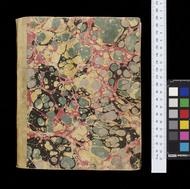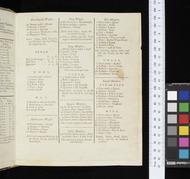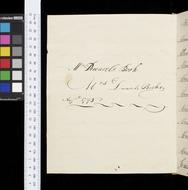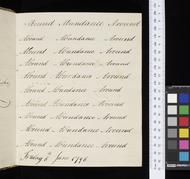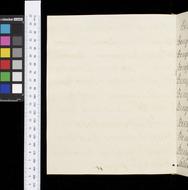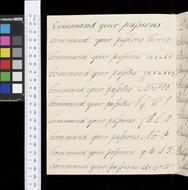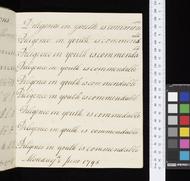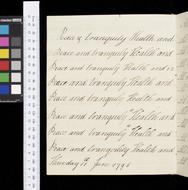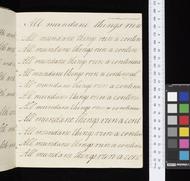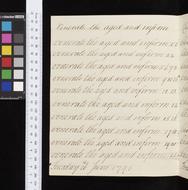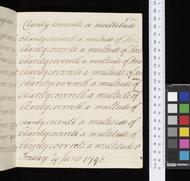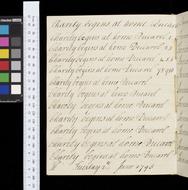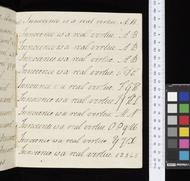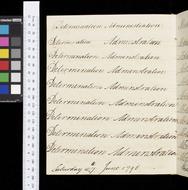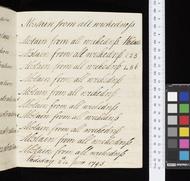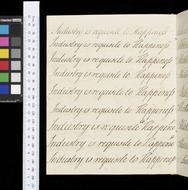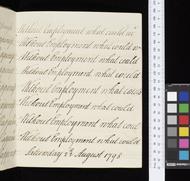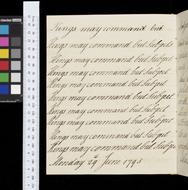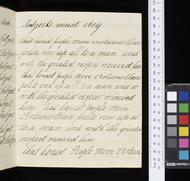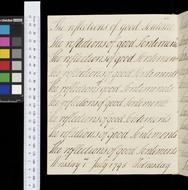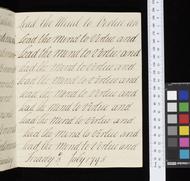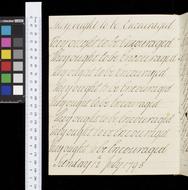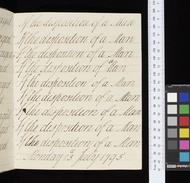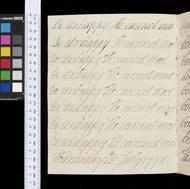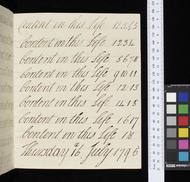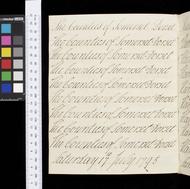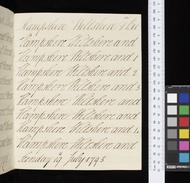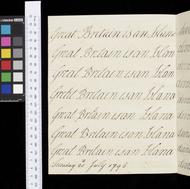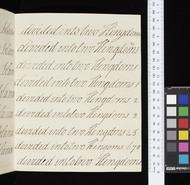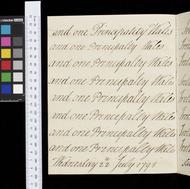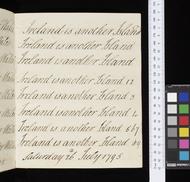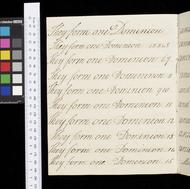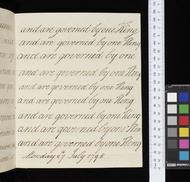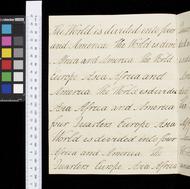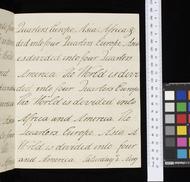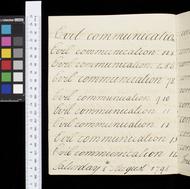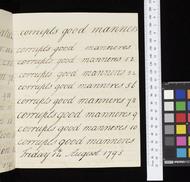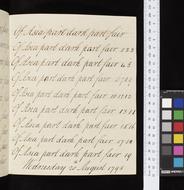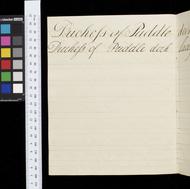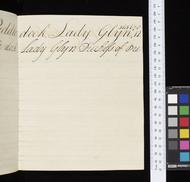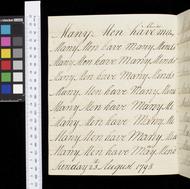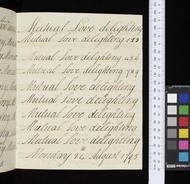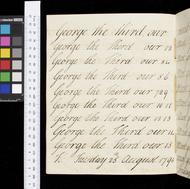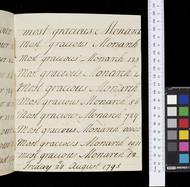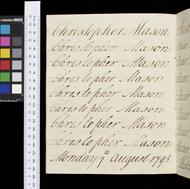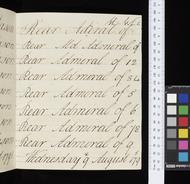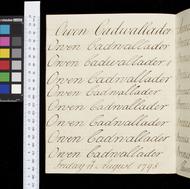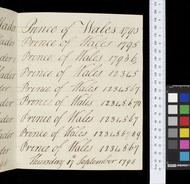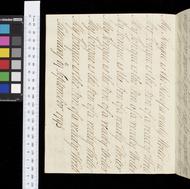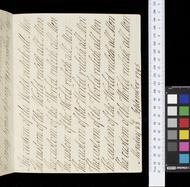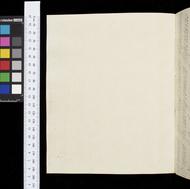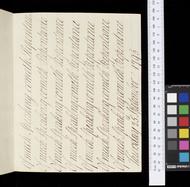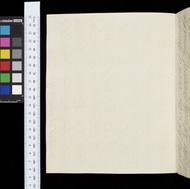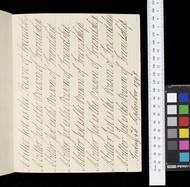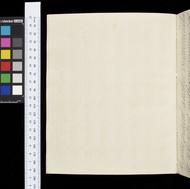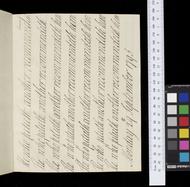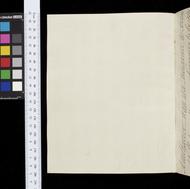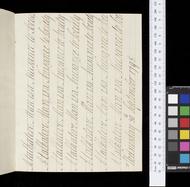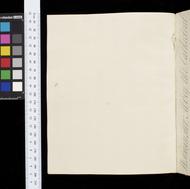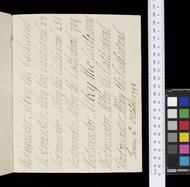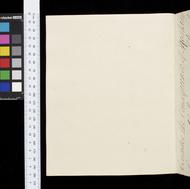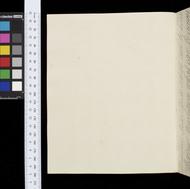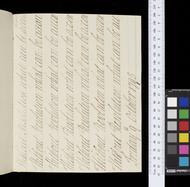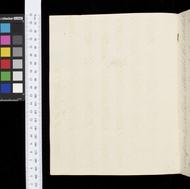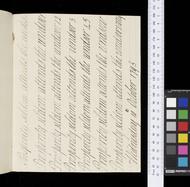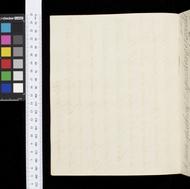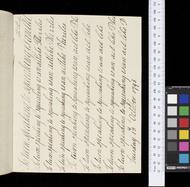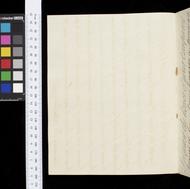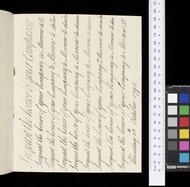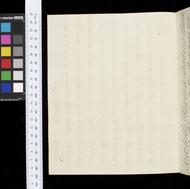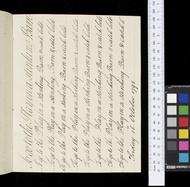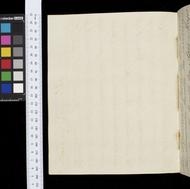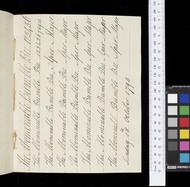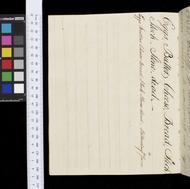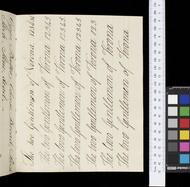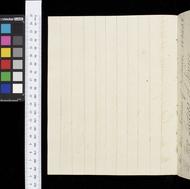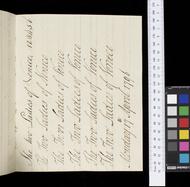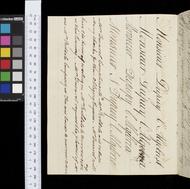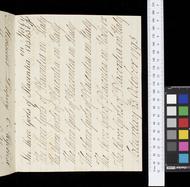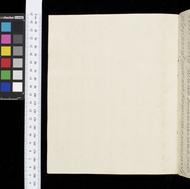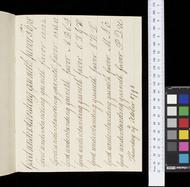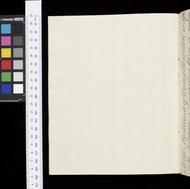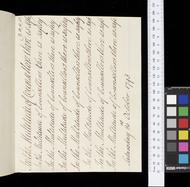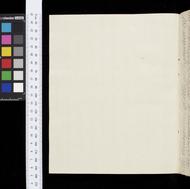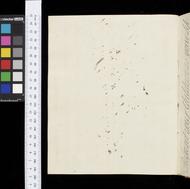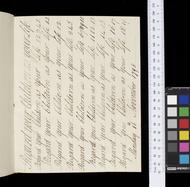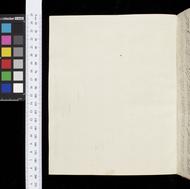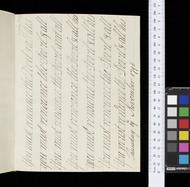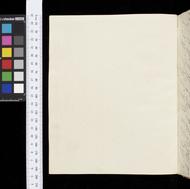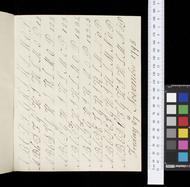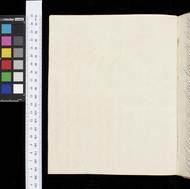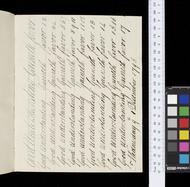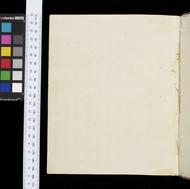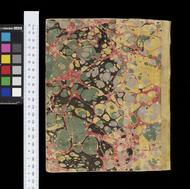UA SNED 1A Mrs. Ducarel's Penmanship Book
Title
Mrs. Ducarel's Penmanship BookAuthors
- Mrs. Ducarel
Call number
UA SNED 1A(Ottery St. Mary, England, Sir John Palmer and Lady Dione Palmer Private Collection)
Publisher
Sir John Palmer and Lady Dione Palmer Private CollectionLanguage
EnglishOrigin
1795
- Place
-
Exmouth, England
Summary
Sharaf un-Nisa's penmanship book is made of paper and cardboard. The paper has chain-lines and watermarking is visible.
Notes
- The inside cover of the notebook is a printed set of tables, with the words "Sold by S. Woolmer, Bookseller, Stationer, Bookbinder, and Printer of the Exeter Gazette." Folio 1v has handwritten twice, in two different hands: "Mrs. Ducarels (sic) Book; Mrs. Ducarel's Books." Below the handwritten titling of the book are the words "August 1795" with six flourishes underneath the date. The book is filled with handwritten words and aphorisms. The pages are dated, and some of the datings are out of order. The penmanship book was sold by a Shirley Woolmer, who also served as printer for the Exeter Gazette or one of the main newspapers in Devonshire. The inside cover features useful measurements and calculations that may be necessary for both everyday and obscure purposes, including a multiplication table and the Troy weight system used primarily for precious metal measurements. Sections of the book are dated out of order, indicating she went back possibly due to lack of paper as it was quite expensive. The paper is likely made of cotton and linen rags, both common materials in the 18th century for papermaking. Although the relatively high number of papermills in England (430 by 1800), the process of making paper was still done by hand at this point, which led to steep prices and its relative luxury status. By the late eighteenth century, writing was still a skill more reserved for the upper classes yet was important for the social education of gentlemen. The eighteenth century was marked by an increase in women learning the skill for household duties and a matter of formality, often learning through private tutors or relatives. Sharaf un-Nisa likely was taught by either or both a writing instructor and her children. This is also likely considering the frequently different handwriting used in the first line of many pages. Cursive was the standard writing practice at the time so Sharaf un-Nisa would have been taught to write cursive only. There are multiple mentions of people both within her life and general English society. She early writes her daughter's name Harriet out several times, as well as using her married surname. There's a reference to a "Lady Glyn" who's the "Duchess of Puddle Dock." Puddle Dock is a neighborhood in London and one of the poorer regions of the city during the 18th century. Glyn is the surname of an up-and-coming banking family and later influential descendants in the 1800s. This could possibly be referring to the wife of one of these bankers, or a quip at the differences between the family's apparent wealth and the poverty found in this slum. She also names King George III, the reigning monarch at her time. There's also mention by name of a Christopher Mason, who served as Rear Admiral of the White for the English. He may have been a household name, or possibly she had known him personally. There's mention of a name Owen Cadwallader followed by the name of a ship from 1794, the Prince of Wales. He may have been a captain or another important crew member on board. There's also a Cadwallader Owen who lived in the 16th and 17th centuries that played an important role as clergyman in Great Britain. The names Mrs Biddele and Monsieur Dupuy l'Algebria, who may be close associates of hers. There are also a few geographic locations, including several in Italy (Verona, Venice, and Placentia), Westminster Abbey, and several continents. The repetition of sayings and phrases on each page signifies these as common phrases of the day or maybe taken from a writing teaching guide.
Extent
Bound to 6.5''W x 8''LSupport
PaperDecoration
The notebook has marbling on the front and back covers.
Script
Provenance
- Palmer Family Archive, Devon, England
Keywords
- India
- Women
- Colonialism
- British India
- South Asia
- Consort
- Cohabitation
- Penmanship
- Handwriting
- English
- Aphorism
Licenses
-
- Text
- Images are ©2021 Palmer Family Collection and licensed under a Creative Commons Attribution ShareAlike License version 4.0 (CC-BY-4.0 https://creativecommons.org/licenses/by/4.0/legalcode. For a description of the terms of use see the Creative Commons Deed https://creativecommons.org/licenses/by/4.0/.
- URL
- https://creativecommons.org/licenses/by-sa/4.0/legalcode
-
- Text
- Metadata is ©2021 Palmer Family Collection and licensed under a Creative Commons Attribution ShareAlike License version 4.0 (CC-BY-SA-4.0 https://creativecommons.org/licenses/by-sa/4.0/legalcode. For a description of the terms of use see the Creative Commons Deed https://creativecommons.org/licenses/by/4.0/.
- URL
- https://creativecommons.org/licenses/by-sa/4.0/legalcode
Images
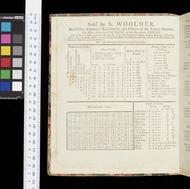 Inside front cover
Inside front cover11282_0001.tif (154.8 MB)
11282_0001_thumb.jpg (7.0 KB)
11282_0001_web.jpg (378.5 KB)
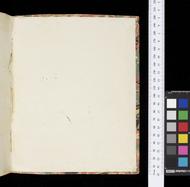 Inside back cover
Inside back cover11282_0098.tif (157.7 MB)
11282_0098_thumb.jpg (4.7 KB)
11282_0098_web.jpg (230.9 KB)

